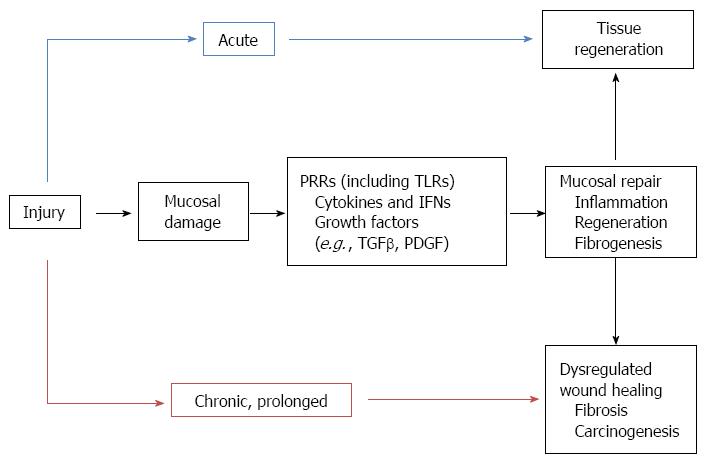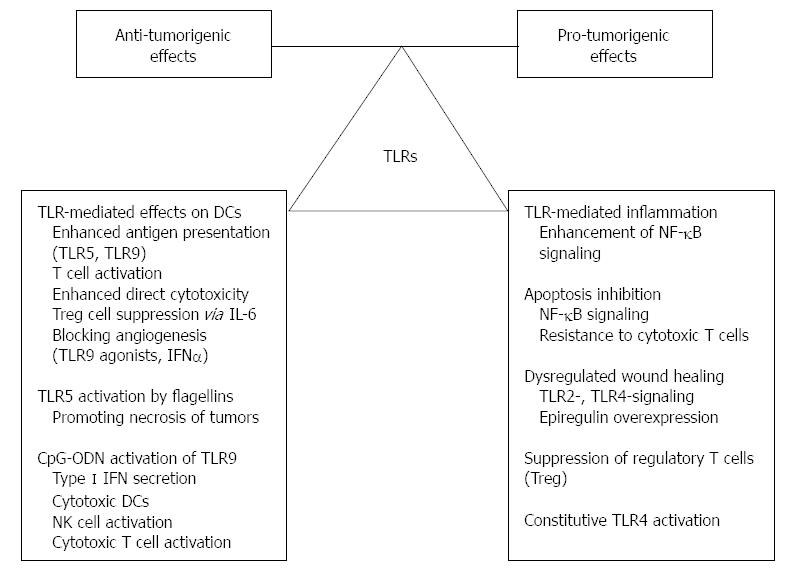Copyright
©2014 Baishideng Publishing Group Inc.
World J Gastroenterol. Sep 28, 2014; 20(36): 12713-12721
Published online Sep 28, 2014. doi: 10.3748/wjg.v20.i36.12713
Published online Sep 28, 2014. doi: 10.3748/wjg.v20.i36.12713
Figure 1 Relationship between pattern recognition receptors and tissue regeneration.
In case of acute tissue injury, TLRs acts as mucosal healing factors. In the case of chronic, sustained inflammation, TLRs may promote dysregulated wound healing leading to cancer development. PRRs: Pattern recognition receptors; TLRs: Toll-like receptors; IFNs: Interferons; TGF: Transforming growth factor; PDGF: Platelet-derived growth factor.
Figure 2 Dual role of Toll-like receptor signaling in colitis-associated carcinogenesis.
While some direct and indirect effects of TLR-signaling act largely as an anti-tumorigenic factors, other effects may promote cancer development. TLR: Toll-like receptor; DC: Dendritic cell; IL: Interleukin; IFN: Interferon; ODN: Oligodeoxynucleotide; NF-κB: Nuclear factor-κB.
- Citation: Sipos F, Fűri I, Constantinovits M, Tulassay Z, Műzes G. Contribution of TLR signaling to the pathogenesis of colitis-associated cancer in inflammatory bowel disease. World J Gastroenterol 2014; 20(36): 12713-12721
- URL: https://www.wjgnet.com/1007-9327/full/v20/i36/12713.htm
- DOI: https://dx.doi.org/10.3748/wjg.v20.i36.12713










